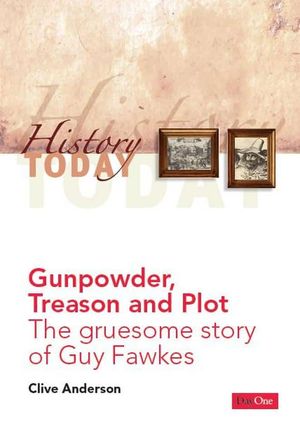This is a new and enlarged edition of a book originally published in 2005 to mark the 400th anniversary of the Gunpowder Plot.
As Anderson points out, we British celebrate Guy Fawkes night, every 5 November, with little awareness of its background. The author addresses this ignorance by placing the plot in its historical, political and religious context. He explains the key differences between Catholics and Protestants and introduces the individuals involved in the plot. Detail is also given about King James I and his predecessors.
Much research is behind the book. Various theories — the condition of the gunpowder and the identity of the person who wrote the warning letter, for example — are explored in detail. We are also informed of the (mostly gruesome) end of each of the conspirators. Numerous photographs, line drawings and maps also help bring the narrative to life.
In the past, Christians paid more attention to the spiritual significance of the foiling of the plot to blow up Parliament than we do today. Preachers, from Richard Sibbes to Charles Spurgeon, saw its anniversary as an opportunity to praise God for his gracious deliverance and to stir up their congregations to spiritual vigilance. Fittingly, Spurgeon’s sermon of 1854 is reprinted in full.
It is obvious that Anderson wishes to give his book a spiritual focus. He begins in chapter 1 by asking, ‘What is a Christian?’. In chapter 3, he challenges the reader, ‘What do you believe?’ and in chapter 7 introduces us to a conspirator against God’s people in the person of Saul of Tarsus, someone who was not beyond the grace of God.
Quite apart from the political implications had the plot been successful, the author speculates on the detrimental spiritual effect it would have had on the nation if successful: no Pilgrim’s Progress, no Westminster Confession, no hymnody, no William Carey or modern missionary movement, to name a few of the possibilities (p.112). In summary, an interesting read.
Ruth Burke
Belfast







